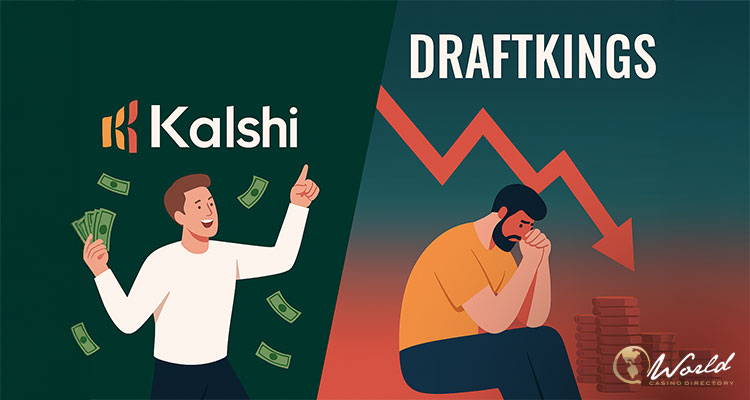Kalshi’s introduction of customizable same-game parlays created ripples well beyond its platform on Monday night, September 29, triggering steep stock losses for two of the largest players in the U.S. sports betting market. Although the prediction exchange collected less than $2,000 in fees during its first day with the new feature, its move unsettled investors and erased close to $7 billion in combined market value from DraftKings and FanDuel parent Flutter Entertainment.
First Day Uptake and Market Mechanics
The new parlay product was rolled out hours before two Monday Night Football matchups featuring the Dolphins against the Jets and the Bengals against the Broncos. It marked Kalshi’s expansion into multi-leg sports betting after securing approval to self-certify four weeks earlier.
Kalshi users can build custom parlays by choosing from multiple betting options, such as a game outcome, total points, or whether a player scores a touchdown. Once selected, the parlay is submitted as a request for quotation, effectively asking other traders—primarily institutional market makers—to price the opposite side. On launch day, trading volume reached $255,757 across 1,229 transactions covering 175 parlay combinations. Median probabilities hovered at 16%, roughly equivalent to +525 odds.
Despite this activity, revenue was minimal. Kalshi booked only $1,762.01 in fees, a tiny fraction of what major sportsbooks generate from the same high-margin products. By comparison, parlays account for more than half of sportsbook revenues and about a quarter of handle in states where reporting is available. On Kalshi, the multi-leg trades represented just 0.2% of overall volume and around 0.15% of fee income.
The limited rollout may explain the muted uptake. The feature was introduced without prior advertising, vanished once the football games began, and was not available via Robinhood, a platform that channels over half of Kalshi’s activity.
Even with modest revenue, the launch rattled equity markets. DraftKings’ shares fell as much as 12.1% in early trading Tuesday before closing at $37.40, down 11.6% for the day and shaving $2.5 billion from its market cap. Since late August, the company has lost more than $5.5 billion in value. Flutter’s shares tumbled 10.3% to $254.00, erasing $5.5 billion on Tuesday alone and bringing the total decline since August to $10 billion.
Other gaming stocks also fell, though by smaller margins. Caesars dipped 3.03%, MGM Resorts slipped 5.12%, and Penn Entertainment dropped 2.28%. Data suppliers Genius Sports and Sportradar were down 7.86% and 5.81% respectively, as investors reassessed the competitive threat prediction markets might pose.
Kalshi’s entry into parlays has raised questions about whether prediction markets could undermine a cornerstone of sportsbook profitability. According to InGame, high-hold parlay bets typically allow sportsbooks such as DraftKings and FanDuel to maintain margins exceeding 10%. If Kalshi can offer comparable products at better odds, it may pressure sportsbooks to adjust pricing models. Analysts, however, remain cautious.
“Until it scales or becomes more robust, it doesn’t appear competitive,”Benchmark analyst Mike Hickey said, adding that DraftKings and FanDuel still retain an advantage. Oppenheimer’s Jed Kelly echoed the view, noting that Kalshi’s parlay product remains rudimentary compared with traditional sportsbooks.
Legal and Strategic Challenges Ahead
Beyond market pressure, Kalshi faces regulatory uncertainty. Operating under the Commodity Futures Trading Commission, it maintains it is a financial exchange rather than a sportsbook. Still, state attorneys general, tribal groups, and regulators have challenged this position, arguing its sports products resemble illegal gaming. “Kalshi walks like, talks like, smells like a sportsbook,” Hickey said. “The strategy to make themselves look just like a sportsbook certainly comes with some risk.”
Prediction markets have already positioned Kalshi in jurisdictions where traditional sportsbooks are absent, including California and Texas. This access has heightened concerns among operators that if these states legalize sports betting, Kalshi could have a head start. FanDuel has responded by forming a prediction market partnership with CME Group, though its offering has not yet launched and does not initially include sports.
While Kalshi’s same-game parlays rattled investors, analysts argue its actual business impact remains small. Most of its volume still comes from sports contracts broadly, which recently surpassed $275 million on a single Sunday, and even that represents just a fraction of the regulated sportsbook market.


